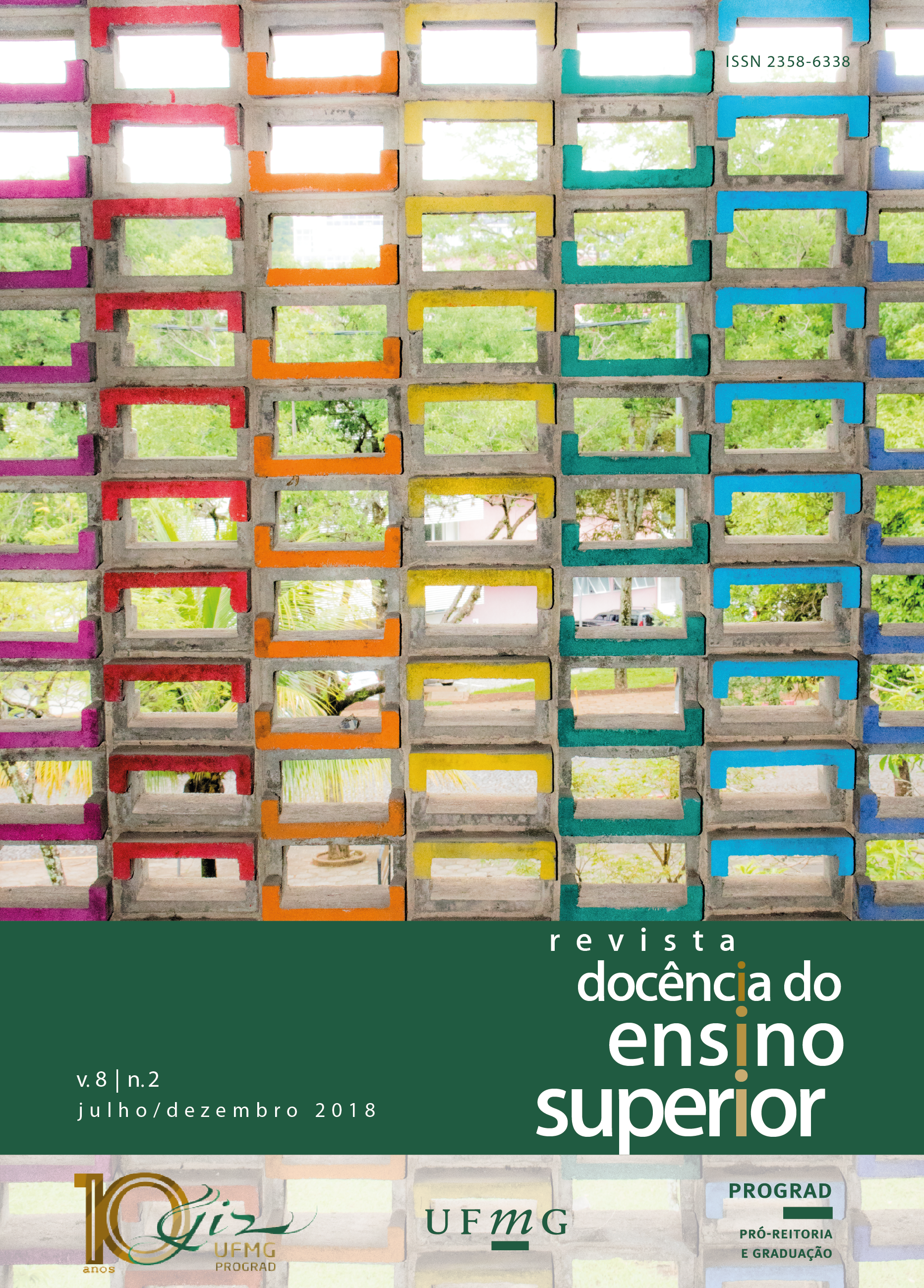Entrevista com a professora Juliane Corrêa sobre a história do Giz
DOI:
https://doi.org/10.35699/2237-5864.2018.2590Keywords:
interview, Directorate of Innovation and Teaching Methodologies, higher educationAbstract
A professora Juliane Corrêa, da Faculdade de Educação (FaE) da Universidade Federal de Minas Gerais (UFMG), foi quem esteve à frente da implementação do Giz na UFMG, desde seu estabelecimento em 2008. Vinculado à Pró-Reitoria de Graduação da UFMG, o Giz é uma Diretoria de Inovação e Metodologias de Ensino, espaço no qual a professora Juliane atuou como diretora nos seis primeiros anos, construindo as condições materiais e pedagógicas de sua proposta no âmbito da UFMG. Posteriormente, tornou-se diretora da FaE (2014-2018). Considerando que no ano de 2018 o Giz completa 10 anos de experiência no cenário da UFMG e que a implementação desse espaço ins tucional se deu sob sua coordenação, a professora Juliane nos concedeu esta entrevista tratando dessa história.
Downloads
Downloads
Published
Issue
Section
License
Copyright (c) 2018 Juliane Corrêa, Maria José Batista Pinto Flores, Paulo Mariano Eulálio Campos.

This work is licensed under a Creative Commons Attribution 4.0 International License.
Authors who publish in this journal retain the copyright and grant the journal the right of first publication, with the work simultaneously licensed under the Creative Commons Attribution License which allows the sharing of work with acknowledgment of authorship and initial publication in this journal.
Authors are authorized to take additional contracts separately, for non-exclusive distribution of the version of the work published in this journal (e.g. publish in institutional repository or as a book chapter), with acknowledgment of authorship and initial publication in this journal.
Open access policy:
Revista Docência do Ensino Superior is an Open Access journal, which means that all content is available free of charge, at no cost to the user or their institution. Users may read, download, copy, distribute, print, search, or link to the full texts of the articles, or use them for any other legal purpose, without seeking prior permission from the publisher or author, provided they respect the license to use the Creative Commons used by the journal. This definition of open access is in line with the Budapest Open Access Initiative (BOAI).



























